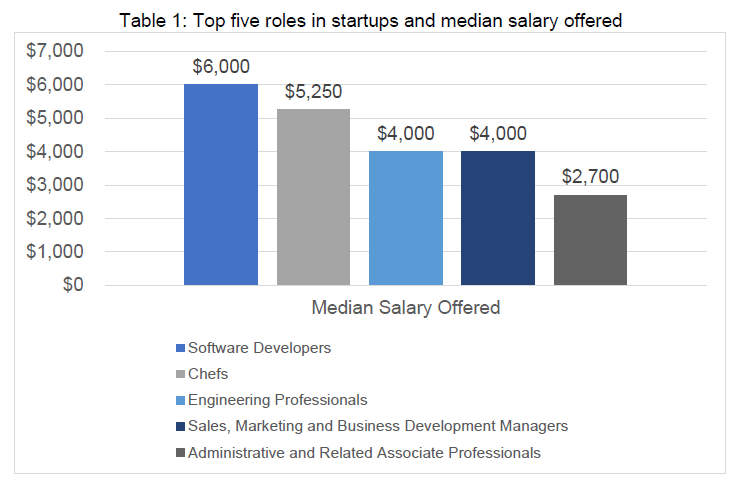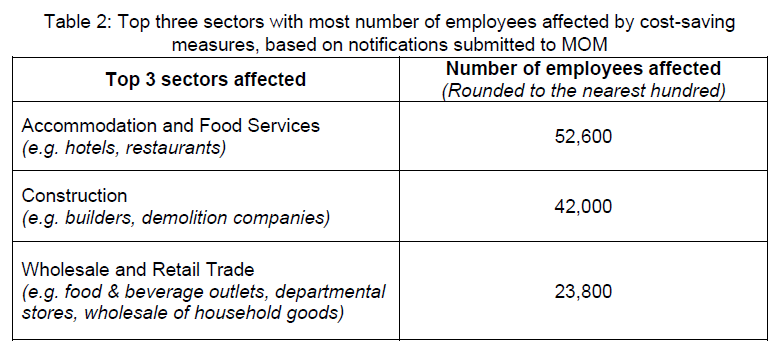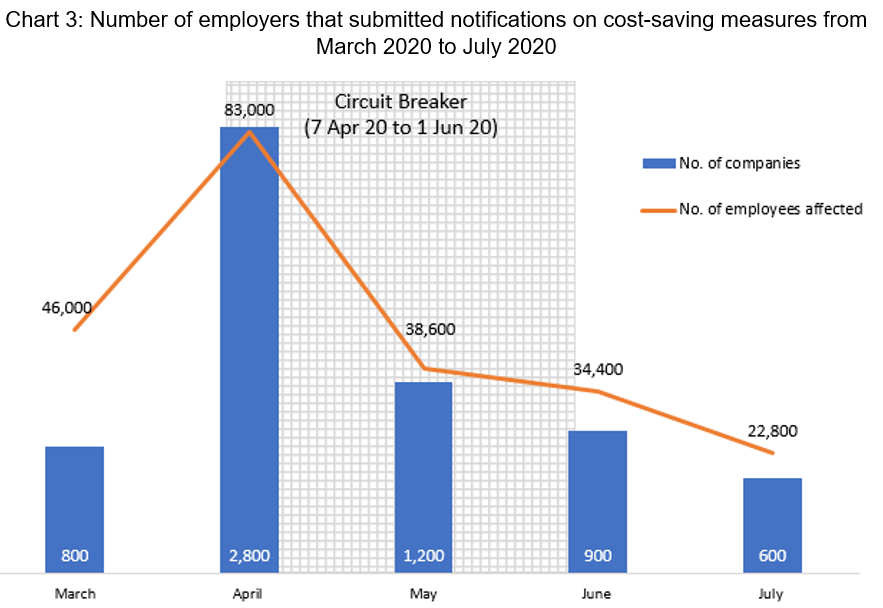Jobs Situation Report (20 August 2020)
Building a strong Singaporean core in new areas of opportunities.
Besides helping businesses to retain existing locals, there is a parallel push for growing businesses to expand hiring.
- Deputy Prime Minister and Minister for Finance Mr Heng Swee Keat announced on 17 August 2020 that the Government will set aside $1 billion for the Jobs Growth Incentive (JGI) scheme. The JGI will provide strong support to employers that are able to grow their local headcounts over the next six months. For each new local hire in eligible growth enterprises, the Government will provide wage support for up to 12 months, with higher support for new local hires aged 40 and above.
- in Singapore are a source of job growth that can potentially expand more with support from the JGI. The Ministry of Trade and Industry (MTI) is also enhancing the Startup SG Founder programme. This week’s Jobs Situation Report will provide jobseekers with information on job roles in the startup scene and how to access the opportunities.
- The report will also share observations on cost-saving measures adopted by employers. This provides a useful backdrop to deliberations by National Wages Council (NWC) which has been reconvened to update its March Guidelines on measures to manage excess manpower.
SGUnited Jobs and Skills Opportunities in Startups
- Before the introduction of the JGI, startups can already tap Workforce Singapore’s (WSG) career conversion programmes and other programmes such as P-Max and Career Trial, to recruit from a wider pool of Singaporean jobseekers. To build their talent pipeline, startups can also offer traineeships or attachments for mid-career individuals under the SGUnited Traineeships and SGUnited Mid-Career Pathways programmes.
- To date, more than 1,600 startups have come onboard SGUnited Jobs and Skills programmes, offering more than 4,600 jobs and 860 traineeships/attachments to local jobseekers. These include unconventional roles such as gallery manager executive, commercial intelligence associate and animator; tech-related roles such as software developers and app developers, and non-tech roles like sous chefs, business development leads and digital content producers.
- Contrary to common perception, salaries offered by startups are not necessarily below the industry norm. For instance, the median salary offered for software developers is $6,000, which is in line with industry norm. Table 1 below shows the top five roles in startups that are hiring, and the median salary offered for each role.

- Between April 2020 and June 2020, around 330 jobseekers have joined the start-ups with support from the SGUnited Jobs and Skills Package. About half were mid-career individuals who took part in Professional Conversion Programmes (PCPs).
- Companies hosting SGUnited Traineeships have started to take in trainees in June. About 150 fresh and recent graduates have since entered the startup scene through the SGUnited Traineeships Programme to pick up valuable skills and experience in a fast-paced environment.
- WSG is continuing to match jobseekers to opportunities in startups. While the job roles and sectors are not always familiar, we are encouraged by the jobseekers who have kept an open mind. The Government will also provide support to businesses, both established and new, to build a strong Singaporean core as they expand.
- For instance, 60-year-old Becky Chang is someone who ventured into the startup scene through a mid-career switch. Having worked for almost four decades in the shipping industry, Mdm Chang had to leave her job in January 2020 when her former employer shut down her business unit due to company restructuring. Although she was concerned over her prospects of finding new employment amidst the COVID-19 pandemic, Mdm Chang pressed on with her search and eventually came across a job opening for a Shipping and Procurement Manager role at Moovaz. She applied for it despite being new to the startup scene.
- Moovaz valued her wealth of work experience and people management skills, and hired her through the PCP for Logistics Executive that helped to bridge her skill gaps in April 2020. Today, Becky enjoys her new role analysing and negotiating freight pricing and managing clients’ relocation moves. She also helps mentor the younger colleagues while learning new trends from them.
Engagement and outreach efforts
- To help jobseekers navigate these opportunities, NTUC’s Employment and Employability Institute (e2i) has intensified its outreach efforts to support jobseekers in their job search and skills upgrading. In July 2020, NTUC’s e2i organised a total of 22 outreach and engagement activities across Singapore, reaching more than 2,800 jobseekers. These events, which are on top of the WSG outreach events reported last week, include SGUnited Job Interviews for roles in areas such as healthcare, community care, technology, as well as virtual career workshops on topics such as salary negotiations, practical job search tips and networking skills.
- Together, NTUC’s e2i and WSG have reached more than 16,000 jobseekers in July 2020.
Cost-Saving Measures Adopted by Employers
- The Tripartite Advisory on Managing Excess Manpower and Responsible Retrenchments (“Tripartite Advisory”) was updated in March this year to give clearer guidance to employers on cost-saving measures that can help them stay afloat and retain their employees. As at end-July, about 6,300 employers have submitted notifications on their cost-saving measures to MOM, affecting some 224,800 employees, both local and foreign. About half of affected workers are from three sectors – accommodation and food services, construction, wholesale and retail trade (see Table 2).

- The volume of notifications peaked during the period of Circuit Breaker but has since decreased significantly. Chart 3 below shows that between April and June, the number of employers submitting notifications exceeded March even if the number of new workers affected moderated sharply from May. In July, notifications and number of workers affected have fallen below the level in March. This suggests that companies were making concerted efforts to hold back retrenchments, likely encouraged by the broad-based support measures provided by Government.

- The top three cost-saving measures implemented were (i) adjustments to monthly salary components, (ii) no-pay leave and (iii) shorter work week. Local employees make up slightly less than half of all employees affected by cost-saving measures. Based on MOM/TAFEP’s engagements, employers have generally been responsible and implemented cost-saving measures fairly.
- Cost-saving measures, as outlined in the Tripartite Advisory, are recommended alternatives to retrenchments, which should be the last resort for employers. However, job losses will still happen with the mounting pressure on businesses due to the COVID-19 pandemic. For these displaced workers, the Taskforce for Responsible Retrenchment and Employment Facilitation continues to render support through employment facilitation services that will match them to new opportunities in growth sectors.